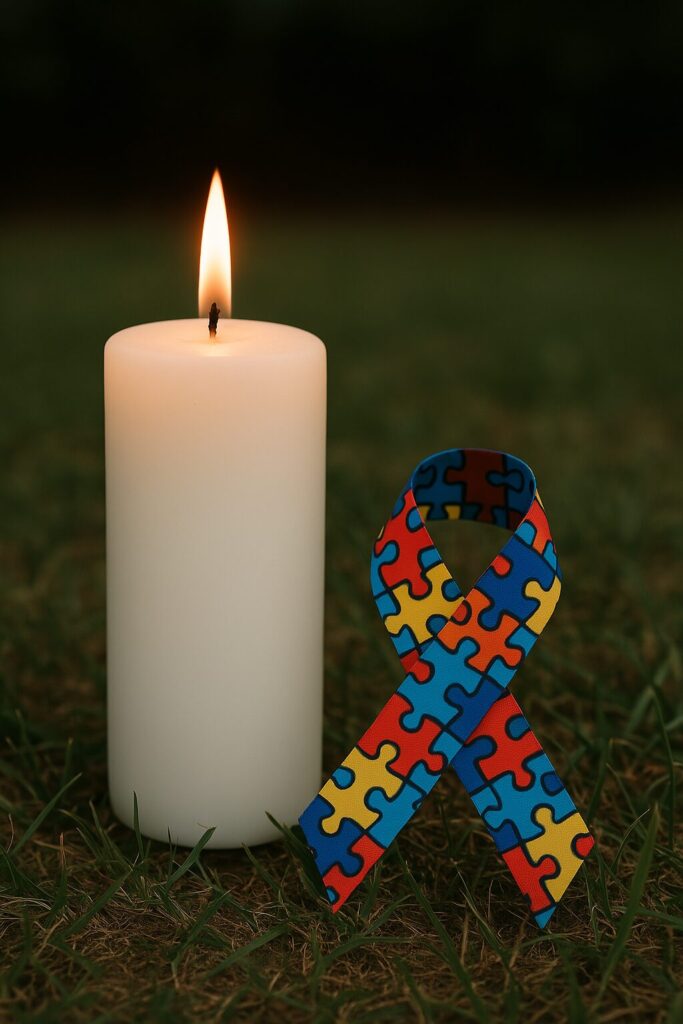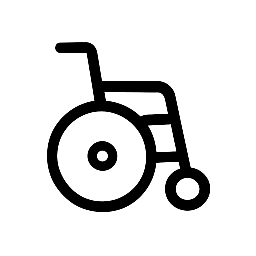
I often find myself down the rabbit hole of true crime, watching channels like ‘Explore With Us‘ for inspiration for ‘Wheelchair Detective.’ But a recent video brought me face-to-face with a case so profoundly upsetting, so utterly infuriating, that I knew I had to write about it immediately. The story of Isaiah Trammell is a painful reminder of what happens when our systems fail the most vulnerable.
The Tragic Timeline: Isaiah Trammell’s Last Hours
Isaiah Trammell, a 19-year-old on the autism spectrum, tragically died after about 10 hours in an Ohio jail. His ordeal began when police responded to a noise complaint from his apartment. Officers found Isaiah frustrated; he told them he had just been fired from Walmart. Despite his distress, he mentioned a job interview at McDonald’s the next day, showing his hope for a better future. However, officers found an active warrant for his arrest due to a missed court date for a domestic violence case. Isaiah’s father later revealed the warrant was mistakenly issued after a wellness check when Isaiah struggled to self-regulate. Neither Isaiah nor his family knew about it. This error led to his arrest by sheriff’s deputies.
Isaiah attended his court appearance as required, and the judge set his bond for release. However, for unknown reasons, he was not processed out of jail. After this point, when he should have been released, his condition worsened. Upon arrival in a regular holding cell, Isaiah disclosed his autism to corrections officers. His severe anxiety and mental breakdown increased, and he began banging his head in the jail’s outer receiving room—a behavior his family calls ‘stimming‘ during stress, which he couldn’t control. At 1:13 a.m., a licensed social worker from Naphcare, the jail’s medical provider, evaluated him. The social worker deemed Isaiah a threat to himself and recommended a strict mental health watch. Disturbingly, when he banged his head on the cells, they strip-searched him, a punitive action instead of a medical response.
Following the social worker’s assessment, Isaiah was stripped of his clothes, given only a weighted vest, and isolated in a mental health protection cell. The lack of humane care persisted as he reportedly asked nurses for a sheet and blanket but was denied these basic comforts under the pretense of mental health caution. He was also refused a mattress and told he could sleep on concrete while on suicide watch. Footage shows him pacing and banging his head. He also told a Naphcare mental health worker that he ‘didn’t want to live,’ clearly indicating suicidal thoughts.
Despite clear signs of distress and repeated pleas for help—begging for mercy, someone to listen, a phone call, medication—police and jail staff largely failed to respond appropriately. He was placed in a restraint chair where he continued screaming and thrashing. He was not taken to a hospital for necessary medical or psychiatric evaluation that could have saved him. Over the hours, his condition worsened.
Only after his physical state became critical, and he was losing consciousness, did jail staff take him to the hospital. As the ambulance arrived, officers rolled Isaiah out in the confinement chair he had been strapped into. He was nonverbal and unresponsive as officers tried to speak with him. When asked to stand, he collapsed, needing officers to hold him up before laying him on the ambulance gurney. The damage was done. Isaiah tragically died three days later at the hospital, not in jail, due to blunt force trauma from banging his head against jail walls. The coroner’s report confirmed his self-inflicted injuries caused his death. His passing leaves a family seeking answers and a community questioning the systems meant to protect him.
My Outrage: Systemic Failure and Lost Empathy
My outrage over Isaiah Trammell’s case comes from a dangerous lack of awareness in the sheriff’s department and city’s legal system. They show a serious failure to understand a person’s emotional and mental state, especially with neurodivergence. Isaiah’s Autism Spectrum Disorder, anxiety, depression, and ADHD should have been taken seriously. Instead, the system, even with licensed mental health professionals at the county jail, dismissed his struggles.
Telling someone in a mental health crisis, especially one with Asperger’s, anxiety, and ADHD who likely lacks proper medication, to “calm down” is cruel and ineffective. This shows a lack of understanding and empathy for Isaiah’s situation. Isaiah’s father noted that in past episodes, authorities did wellness checks and sent Isaiah to a hospital for help. That crucial intervention was missing the night he was arrested. Isaiah wasn’t just a detainee; he was a person trying to manage an overwhelming situation. On camera, Isaiah expressed wanting to get to a job interview—a proof of his drive for independence and ambition to support himself and build a life. He was working to be a contributing member of society and prove his capability.
Tragically, Isaiah found no support inside those walls. No one looked out for him. The system let him scream and bang his head until he was almost nonverbal. If this was truly a ‘mental health protection cell,’ why were there no padded walls or windows to prevent self-harm? And why did only one officer suggest a safety helmet, and only just before Isaiah became unresponsive—far too late to help? Only then, too late, was he sent to the hospital. He essentially ‘screamed and banged until he was no more.’ He should have been in protective custody, and if he had medication, jail nurses should have given it. This young man’s main issue was a mistaken domestic violence warrant. His death wasn’t an accident; it was caused by a system lacking the care and protocols to protect the vulnerable. The coroner’s ruling of suicide insults justice. This was not suicide; it was the result of the sheriff’s department failing to act and provide proper mental health treatment. Shame on that coroner. Isaiah’s blood is on their hands, even if they claim they followed all procedures and protocols.
A Call for Awareness, Understanding, and Accountability
Isaiah Trammell’s story highlights a system that often fails those it should protect. It calls for more than sorrow; it requires a deep shift in awareness and understanding. There is no excuse for ignoring when people, especially those with disabilities, express struggles or intent to self-harm. As a society, we must always be alert when someone shows signs of harm and do everything possible to assure them they are worthy of life and care.
Isaiah’s death highlights a severe communication breakdown in law enforcement and corrections. How did officers miss past welfare check records showing his mental health hospital transfers when taking him into custody? This oversight reveals a systemic failure to use information for a humane response. Why didn’t an officer stay with Isaiah at the mental health facility to ensure his domestic violence warrant was processed? This simple step might have helped. Instead, Isaiah’s safety was overlooked in favor of rigid procedures.
Isaiah’s case powerfully reminds us why ‘Wheelchair Detective’ exists. It highlights the harm caused when people with disabilities are ignored, misunderstood, and their pleas for help go unheard. We must push for better training, clearer protocols, and a culture shift in justice and mental health systems—one that values compassion, proper care, and dignity for all, especially those vulnerable. For Isaiah and many others, his silenced voice must keep demanding justice and a future where no one is left behind.


Leave a Reply